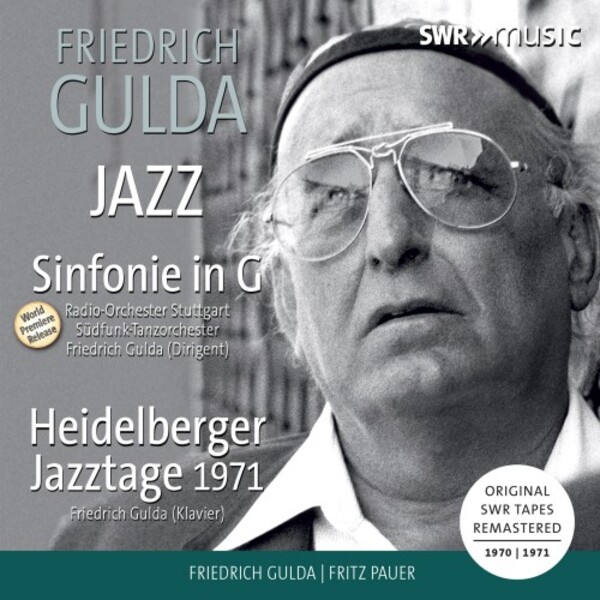
Gulda - Symphony in G major, Heidelberger Jazztage 1971
£13.25
In stock - available for despatch within 1 working day
Despatch Information
This despatch estimate is based on information from both our own stock and the UK supplier's stock.
If ordering multiple items, we will aim to send everything together so the longest despatch estimate will apply to the complete order.
If you would rather receive certain items more quickly, please place them on a separate order.
If any unexpected delays occur, we will keep you informed of progress via email and not allow other items on the order to be held up.
If you would prefer to receive everything together regardless of any delay, please let us know via email.
Pre-orders will be despatched as close as possible to the release date.
Label: SWR Classic
Cat No: SWR19096CD
Format: CD
Number of Discs: 1
Release Date: 22nd January 2021
Contents
Works
EntreePlay Piano Play (10 Ubungsstucke fur Yuko)
Symphony in G major
Variations
Meditationen
Artists
Friedrich Gulda (piano)Radio-Orchester Stuttgart
Sudfunk-Tanzorchester
Conductor
Friedrich GuldaWorks
EntreePlay Piano Play (10 Ubungsstucke fur Yuko)
Symphony in G major
Variations
Meditationen
Artists
Friedrich Gulda (piano)Radio-Orchester Stuttgart
Sudfunk-Tanzorchester
Conductor
Friedrich GuldaAbout
Friedrich Gulda combined a classical string orchestra with a big band in his Symphony in G. Gunther Schuller (who was born in New York in 1925 and died in Boston in 2015) is considered to be the figurehead of this symbiosis between jazz and so-called classical music, called ‘Third Stream’. Gulda follows classical sonata form in the work.
At the beginning of the 1970s Gulda gave concerts that exclusively featured his own compositions, including his performance at the Heidelberger Jazztage 1971. There he first played Entrée and Variations. Originally, Entrée was planned as an individual piece but later made up the first movement of Sonatine. Entrée uses classical sonata form, but leaves ample room for improvisation. Indeed, almost all of Gulda’s works require knowledge of improvisation so as to “keep them away from bunglers”, as Gulda put it.
In 1966 Fritz Pauer was a prizewinner in the jazz competition Gulda had initiated. Pauer composed five Meditationen, the second of which is entitled Etude. A core element of this piece is the left-hand ostinato, above which the performer has to improvise.
In Gulda’s highly virtuosic Variations, the improvisations arise from the bass theme and then sink back again. One of Gulda’s few compositions without improvisation is No.4 from the ten-part piano cycle Play Piano Play. Prelude and Fugue was probably Gulda’s favourite work and formed the finale at Gulda’s Heidelberg performance.
Error on this page? Let us know here
Need more information on this product? Click here